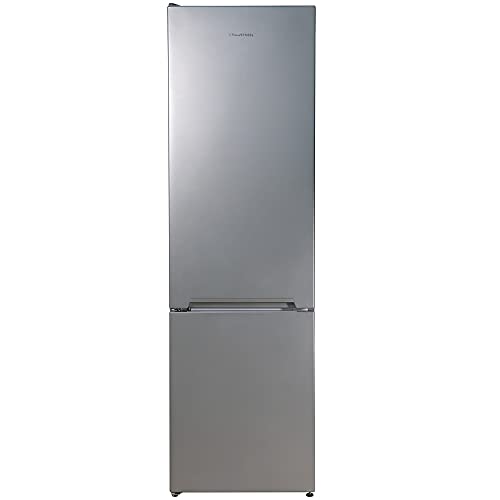fridge-freezer-next-day-delivery7929
fridge-freezer-next-day-delivery7929
The 9 Things Your Parents Taught You About Fridge UK

The Comprehensive Guide to Refrigerators in the UK
Refrigerators are an important appliance in every household, serving a crucial function in food preservation and safety. The UK market offers a diverse variety of fridge types, sizes, features, and brands. This article intends to supply an in-depth understanding of refrigerators offered in the UK, including their functions, energy efficiency, and factors to think about when making a purchase.
Types of Refrigerators Available in the UK
When trying to find a refrigerator, it is essential to understand the different types available. Each type includes its own set of functions and functions, accommodating different requirements and preferences. The most common types of fridges found in the UK consist of:
1. Leading Freezer Refrigerators
- Description: The traditional design, featuring the freezer compartment on top.
- Pros: More affordable, roomy, easy access to fresh food.
- Cons: Limited freezer space, the top might be less practical for bulk products.
2. Bottom Freezer Refrigerators
- Description: Freezer lies at the bottom, allowing much easier access to fresh food.
- Pros: Greater convenience, much better exposure of fresh products.
- Cons: Usually more costly, some may fight with large frozen products.
3. Side-by-Side Refrigerators
- Description: Features 2 vertical compartments, one for the fridge and one for the freezer.
- Pros: Ample storage space, simple to access both frozen and fresh foods.
- Cons: Wider footprint, they may not fit in smaller kitchens.
4. French Door Refrigerators
- Description: Combines functions of bottom freezers and side-by-sides, with two doors for the fridge on top.
- Pros: Stylish style, large, and often includes innovative features.
- Cons: Higher cost point, aligns improperly with smaller sized cooking area designs.
5. Compact Refrigerators
- Description: Smaller models created for restricted areas.
- Pros: Ideal for small homes or offices, energy-efficient.
- Cons: Limited storage capability, may do not have functions.
6. Integrated Refrigerators
- Description: Designed to blend flawlessly with cooking area cabinets.
- Pros: Custom fit, visual appeal, increases home worth.
- Cons: Higher expense, may offer less versatility in positioning.
7. Smart Refrigerators
- Description: Equipped with Wi-Fi and wise technology features.
- Pros: Advanced includes like touch screens and internal video cameras.
- Cons: Expensive, more complex to fix.
| Refrigerator Type | Ease of access | Average Price Range | Energy Efficiency |
|---|---|---|---|
| Leading Freezer | Moderate | ₤ 300 – ₤ 600 | Average |
| Bottom Freezer | High | ₤ 400 – ₤ 800 | Above Average |
| Side-by-Side | Easy | ₤ 800 – ₤ 1500 | Varies |
| French Door | High | ₤ 800 – ₤ 2000 | High |
| Compact | Minimal | ₤ 200 – ₤ 500 | Average |
| Integrated | Custom-made | ₤ 1000 – ₤ 2500 | High |
| Smart | Variable | ₤ 1200+ | High |
Key Features to Consider
- Energy Efficiency: Look for designs that are energy-efficient. In the UK, home appliances are ranked from A (most effective) to G (least effective). An A+ score and above can lead to considerable energy savings.
- Capacity: Choose a fridge uk with enough capacity for your home. A standard guideline is 100-200 liters per person.
- Noise Level: Consider models that operate quietly, particularly if the kitchen is near living spaces.
- Cooling Technology: Features like frost-free technology deserve the financial investment, as they lessen maintenance.
- Adjustable Shelves: Having adjustable shelves improves the versatility to keep larger items.
- Temperature level Control: Check for user friendly temperature controls and zones for various types of food.
- Style: Choose the design and color that matches your kitchen visual, whether you choose a contemporary stainless steel appearance or a traditional retro surface.
Buying Tips
- Identify Your Needs: Consider your cooking routines, household size, and kitchen space.
- Set a Budget: Refrigerators been available in various price ranges. Develop a budget before you start going shopping.
- Research Study Energy Ratings: Invest in energy-efficient models to save money on utility bills.
- Check out Reviews: User experiences can offer insights into dependability and efficiency.
- Compare Brands: Some brands are understood for their sturdiness while others may offer more innovative functions.
Regularly Asked Questions (FAQs)
1. For how long do fridges generally last?
- Fridges generally last in between 10 to 20 years, depending upon the brand and how well they are maintained.
2. Exist any maintenance tips for prolonging the life of a refrigerator?
- Frequently tidy the coils, inspect the door seals, and periodically defrost if necessary to keep ideal efficiency.
3. What is the very best size refrigerator for a family of four?
- For a family of 4, a refrigerator with a capacity of around 400-600 liters is generally sufficient.
4. Do I require to stress about energy consumption when purchasing a refrigerator?
- Yes, energy intake is very important. Look for systems with high energy efficiency scores to lower monthly expenses.
5. Should I select a fridge with a water and ice dispenser?
- This function can be convenient, specifically for families. However, it might need more maintenance than basic models.
Acquiring a refrigerator is a considerable choice for any household in the UK. With different types available, each with its unique features and benefits, it is essential to evaluate specific requirements before choosing. By thinking about elements such as energy efficiency, capacity, and design looks, consumers can pick a fridge that lines up well with their lifestyle, ultimately boosting their kitchen area experience while protecting food quality and freshness.

